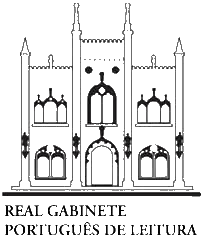Brasil, país do futuro: segundo Stefan Zweig e Agostinho da Silva
Keywords:
Stefan Zweig, Agostinho da Silva, Brazilian History, Brazilian ldentity, Visions of BrazilAbstract
Stefan Zweig and Agostinho da Silva, each in his own way, witnessed the present and looked towards the future of Brazil wherein they saw a possibility of a better future for the whole world. ln Stefan Zweig's oeuvre Brazil holds an episodic, albeit distinct, position as the tragic conclusion of his life. ln Agostinho da Silva's work Brazil is a privileged subject as well as the experience of a biography closely intertwined with the history of that country. Stefan Zweig's and Agostinho da Silva's views converged in regarding Brazil as an alternative cultural and developmental model in relation to the contemporary Europe, a model which they considered superior in that it was based on humanistic and universally Christian values which had no longer served as the basis for the Old World. There are, however, significant differences. For example, in Stefan Zweig's vision of Brazil the processes of homogenization and unification are highlighted and idealized, whereas Agostinho da Silva emphasizes Brazil's diversity and liberty.
Downloads
Downloads
Published
How to Cite
Issue
Section
License
Authors who publish in Convergência Lusíada agree with the following terms:
- Authors retain copyright and grant the journal right of first publication with the work simultaneously licensed under a Creative Commons Attribution-NonCommercial 4.0 International License (CC-BY-NC 4.0) that allows others to share the work with an acknowledgment of the work's authorship and initial publication in this journal.
- Authors may enter into separate, additional contractual arrangements for the non-exclusive distribution of the journal’s published version of the work (e.g., post it to an institutional repository or publish it in a book), with an acknowledgment of its initial publication in this journal.
- Authors are permitted and encouraged to post their work online (e.g., in institutional repositories or on their website) prior to and during the submission process, as it can lead to productive exchanges, as well as earlier and greater citation of published work.

Revista Convergência Lusíada is licensed under a Creative Commons - Atribuição-NãoComercial 4.0 Internacional.









